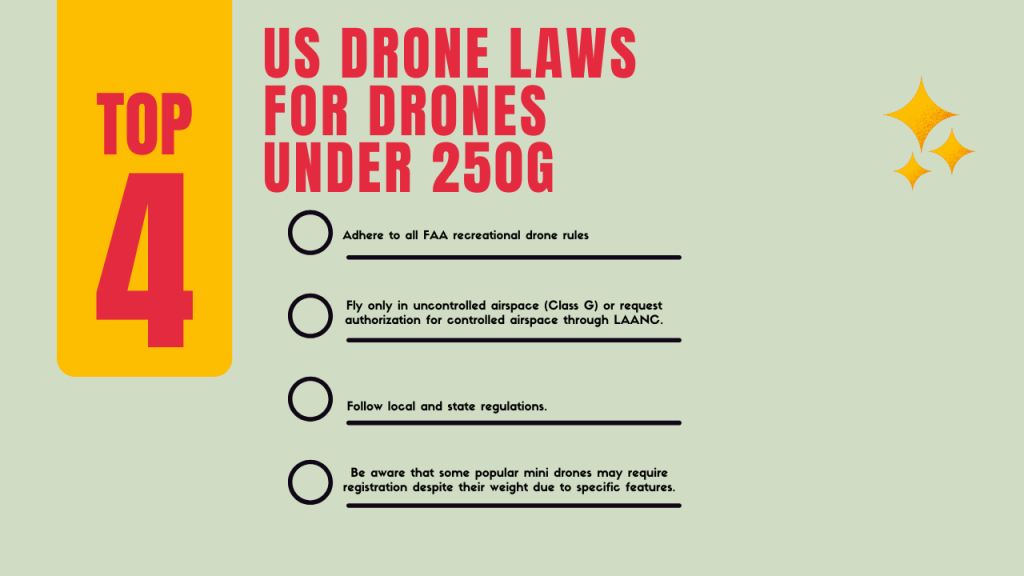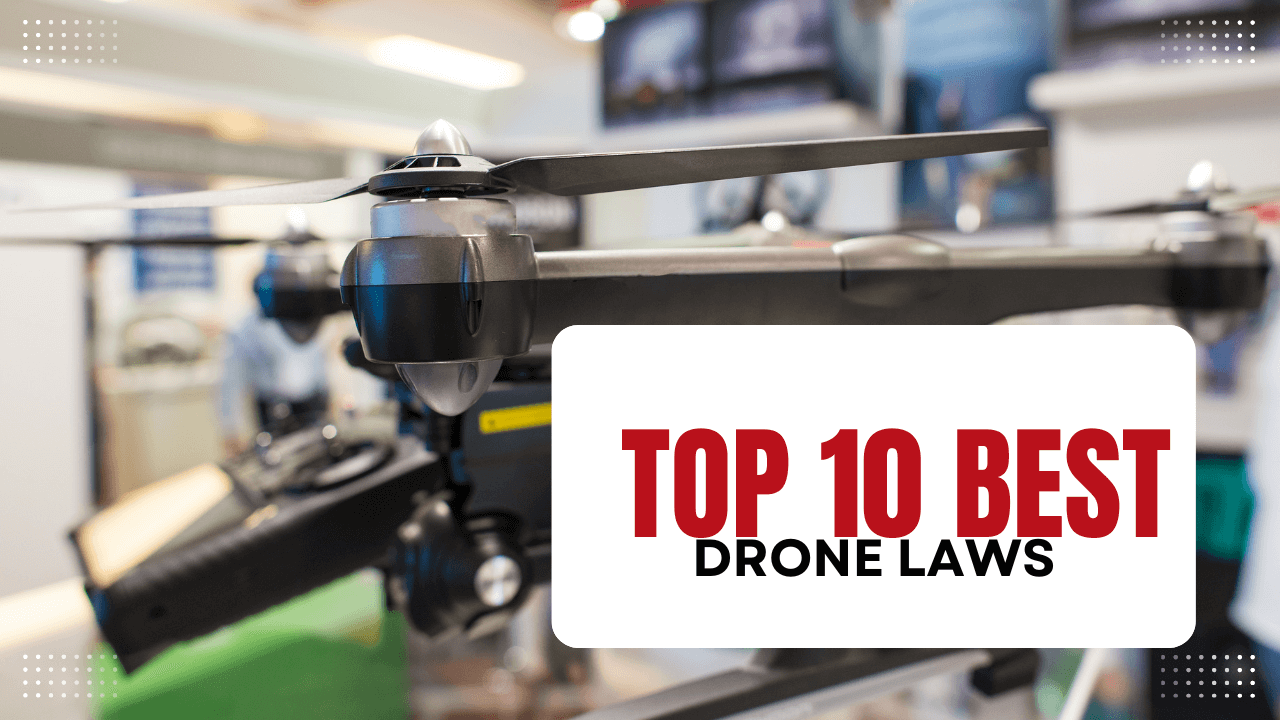Understanding FAA Regulations for Safe and Legal Drone Operation
Introduction
Are you excited about your first drone flight but unsure about the legal requirements? Understanding the drone laws you need to know before your first flight is crucial for safe and responsible operation. In this comprehensive guide, we’ll explore the new drone laws you need to know before your first flight in the USA, ensuring you’re well-prepared for takeoff.
FAA Recreational Drone Rules
The Federal Aviation Administration (FAA) has established clear guidelines for recreational drone pilots. Here are the key rules you must follow:
- Register your drone with the FAA if it weighs more than 0.55 lbs (250g).
- Always keep your drone within visual line of sight.
- Fly at or below 400 feet in uncontrolled airspace.
- Never fly near other aircraft or over people.
- Don’t fly in restricted airspace without authorization.
- Avoid flying under the influence of drugs or alcohol.
For more detailed information on FAA regulations, visit the official FAA website.
Drone Registration Requirements
If your drone weighs more than 0.55 lbs (250g), you must register it with the FAA. Here’s how:
- Visit the FAA DroneZone website.
- Create an account and provide necessary information.
- Pay a $5 registration fee (valid for 3 years).
- Mark your drone with the registration number.
Remember, you must carry proof of registration when flying your drone.
Drone Weight Limits and Licensing
The drone weight limit plays a significant role in determining licensing requirements:
- Drones under 0.55 lbs (250g): No registration or license required for recreational use.
- Drones 0.55 lbs to 55 lbs: Registration required, but no license needed for recreational use.
- Drones over 55 lbs: Special authorization required from the FAA.
While recreational pilots don’t need a license, commercial drone pilots must obtain a Remote Pilot Certificate by passing the FAA’s Part 107 exam.
US Drone Laws for Drones Under 250g

Even if your drone weighs less than 250g, you still need to follow certain rules:
- Adhere to all FAA recreational drone rules.
- Fly only in uncontrolled airspace (Class G) or request authorization for controlled airspace through LAANC.
- Follow local and state regulations.
- Be aware that some popular mini drones may require registration despite their weight due to specific features.
Drone Regulations by State
While federal laws apply nationwide, individual states may have additional regulations. Some common state-level drone laws include:
- Restrictions on flying over private property without permission.
- Prohibitions on using drones for surveillance or harassment.
- Limitations on drone use in state parks or wildlife areas. Click here for the best wildlife drones
Before flying, check your state’s specific drone regulations. Resources like the National Conference of State Legislatures provide up-to-date information on state drone laws.
Penalties for Flying Without a License
Flying a drone without proper registration or violating FAA rules can result in severe penalties:
- Civil penalties up to $32,666 per violation.
- Criminal penalties including fines up to $250,000 and/or imprisonment for up to three years.
The FAA may also suspend or revoke your drone registration.
To avoid these consequences, always follow the rules and stay informed about any changes in drone regulations.
Conclusion
Understanding drone laws is essential for safe and legal operation. By following FAA recreational drone rules, registering your drone when required, and staying informed about state-specific regulations, you can enjoy your drone flights worry-free.
Remember to always prioritize safety and respect for others’ privacy when flying. As drone technology continues to evolve, stay updated on the latest regulations to ensure compliance.
Are you ready for your first legal and safe drone flight? Share your experiences or questions about drone laws in the comments below!
